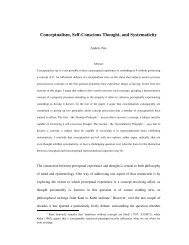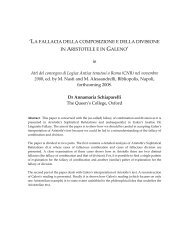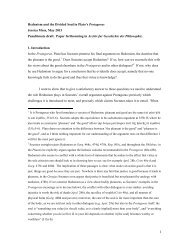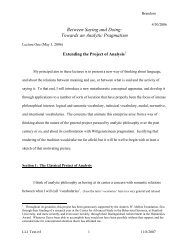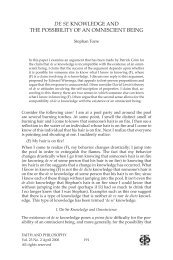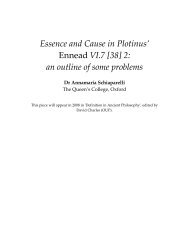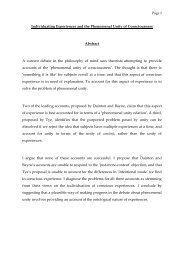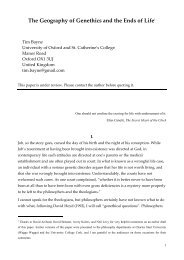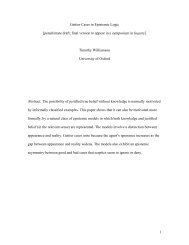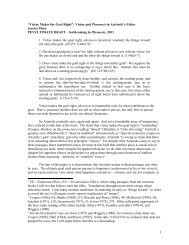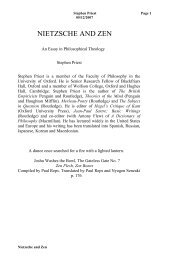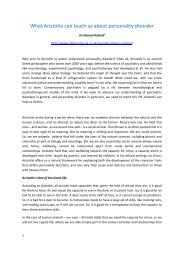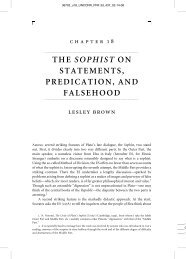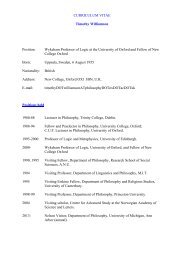Understanding as a Finite Ability Joseph K. Schear Christ Church ...
Understanding as a Finite Ability Joseph K. Schear Christ Church ...
Understanding as a Finite Ability Joseph K. Schear Christ Church ...
You also want an ePaper? Increase the reach of your titles
YUMPU automatically turns print PDFs into web optimized ePapers that Google loves.
To appear in Wittgenstein and Heidegger (Routledge, 2013) eds. D. Egan, S. Reynolds, and A.Wendland<br />
are otherwise for the finite intellect, for whom the distinction between the recognizably possible<br />
and the actual, and the threat that distinction engenders, is, in Heidegger’s vision, the medium of<br />
its existence. This is the finitude of a being bent on a sustainably intelligible form of life, and so<br />
uniquely capable of fundamental change.<br />
9. Wittgenstein’s conception of the finitude of our understanding, its partiality, is shaped by a<br />
contr<strong>as</strong>t to the infinite intellect, c<strong>as</strong>t <strong>as</strong> a single gulp intellect. We saw how a comprehensive<br />
intuiting leaves no room for the distinction between the actual and the possible. Heidegger’s<br />
conception of the finitude of our understanding, its liability to transformative reconfiguration, is<br />
shaped by a contr<strong>as</strong>t to the infinite intellect, understood <strong>as</strong> a productive intuition. Here too, the<br />
distinction between the actual and the possible finds no place. The single gulp power of intuition<br />
is logically distinct from the productive power of intuition, but either power is sufficient, on its<br />
own, to efface the distinction between the actual and the possible. Producing objects and<br />
intuiting objects <strong>as</strong> a whole in one stroke of course come together in the traditional idea of God.<br />
And just <strong>as</strong> the divine intellect, c<strong>as</strong>t <strong>as</strong> a single gulp intellect, may “see right into” phenomena,<br />
but is in no position to do grammatical investigation, Heidegger puts his correlative point, about<br />
the divine intellect’s productive power, <strong>as</strong> follows: “God does not do ontology” (KPM 318).<br />
Can we really make sense of these infinite powers? For Heidegger, one might think, there<br />
is some pressure for productive intuition indeed to make sense. After all, it is meant to serve <strong>as</strong><br />
one side of a contr<strong>as</strong>t that helps illuminate the finitude of human understanding. For<br />
Wittgenstein, one might think, the fact that the power of single gulp intuition functions largely <strong>as</strong><br />
an object of temptation, or fant<strong>as</strong>y, lessens the demand for it to be a coherent possibility. But the<br />
first thought may overestimate the demands of Heidegger’s explanatory contr<strong>as</strong>t, or at le<strong>as</strong>t the



